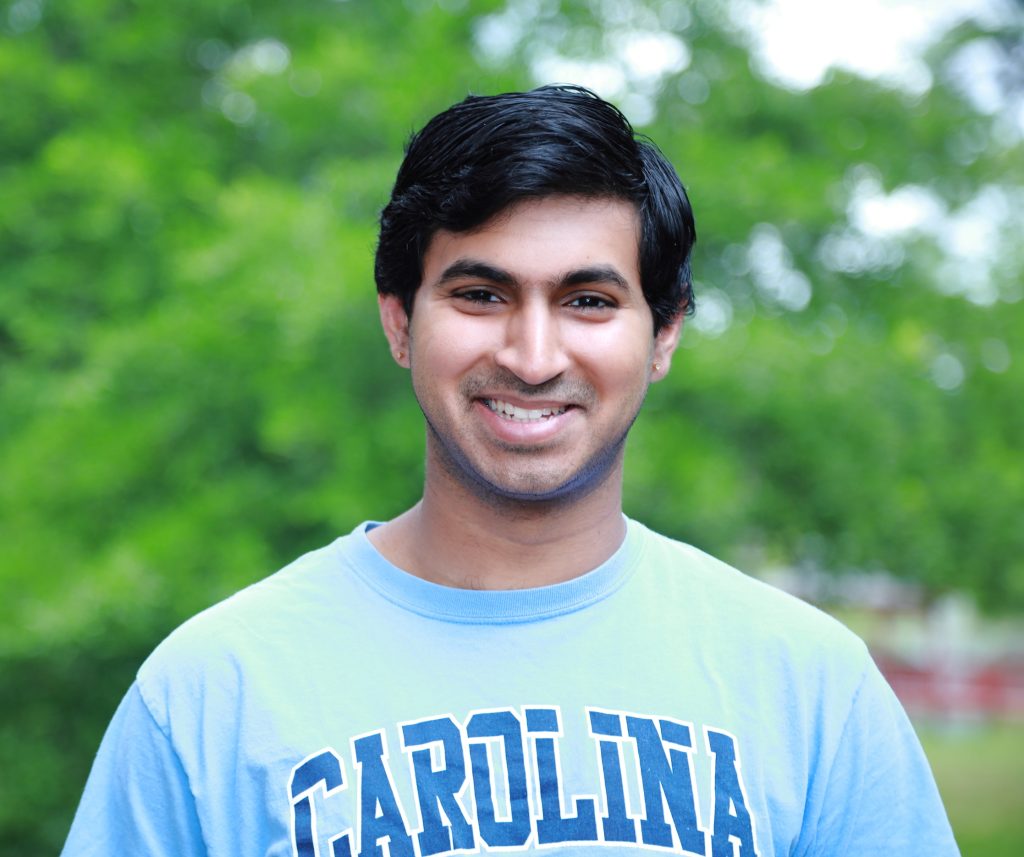“I think all fields of study have both objective components and artistic components, and the music department has really inculcated both sides of this in me through the means of music.”

UNC Music: What have you been up to since graduation from UNC in 2019?
Svetak Sundhar: After graduation, I moved to Austin, TX to start a job in Google’s cloud division. Unfortunately, due to the pandemic, things went remote, but are finally starting to open up again. During this period, I was able to listen to a lot of music online, as well as practice both in structured and unstructured ways.
UNC Music: How has music continued to play a role in your life?
Sundhar: I’ve always enjoyed being part of a concert experience (both as an audience member and as a performer), and so I continue to seek out ways that I can recreate that feeling. I’ve continued to perform western classical music at weddings. Additionally, at UNC, I became really interested in learning and exploring a style of Indian classical music known as Carnatic music. I continue to learn this art form and perform at various events (providing music for Indian dance recitals, solo concerts, playing in religious settings, accompanying music for poetry reading, etc.) All these have given me no shortage of opportunities post-grad.
UNC Music: How did you connect with Abhishek Balakrishnan and Aditya Srivatsan for the East Meets West Ravi Shankar tribute video (below)?
Sundhar: When I was a first-year student at UNC, Abhishek was a graduate student at Duke and ran an organization called Duke-Sangeet. I attended one of their events and I was fascinated by the way Carnatic musicians conceptualized the style in terms of phrases and ragas, and he was very interested in learning western techniques to allow him to play faster and develop comfort in different parts of the bow. He introduced me to Aditya, a tabla player he regularly performs with, and we had the idea to perform an excerpt from the duet by Ravi Shankar and Yehudi Menuhin. We finally made it happen 6 years later via a video production!
UNC Music: What other musical projects are coming up that you’re particularly excited about?
Sundhar: One idea that is still being planned out is a Baroque-Carnatic collaboration. The tones really blend quite well between the two styles, since the Baroque style of playing naturally provides a relatively lighter soundscape. Baroque music contributes some really beautiful harmonies, while Carnatic music can provide a detailed exploration into ragas and rhythmic patterns.
UNC Music: What lessons from your time in the music department have been particularly helpful post-graduation?
Sundhar: There are so many lessons I’ve learned in the music department that translate really well into my professional life and life in general. Looking back, my critical thinking skills really developed thanks to every faculty member and peer I interacted with. When I mentioned that I was interested in learning more about Carnatic music, every faculty member not only accepted it, but encouraged it and provided me with resources and ideas to continue learning. The concept of encouraging innovation is something I felt in the music department and is prevalent in much of my professional life in the technology industry today. Outside of this, I’ve learned how to approach learning new things in a detail-oriented and methodical manner, while understanding that any form of presentation requires emotion that reaches the audience.
UNC Music: Anything else readers should know about your music now or life in general, post-graduation?
Sundhar: I think all fields of study have both objective components and artistic components, and the music department has really inculcated both sides of this in me through the means of music. I hope to continue meeting incredible artists in all different genres of music and work on really interesting projects that push the envelope of what’s been done before.
During his time at UNC, Svetak Sundhar majored in Statistics & Analytics and Computer Science and minored in music. He was a violin student of Dr. Nicholas DiEugenio and played with the UNC Symphony Orchestra and University Chamber Players.
by Catherine Zachary, ’10
